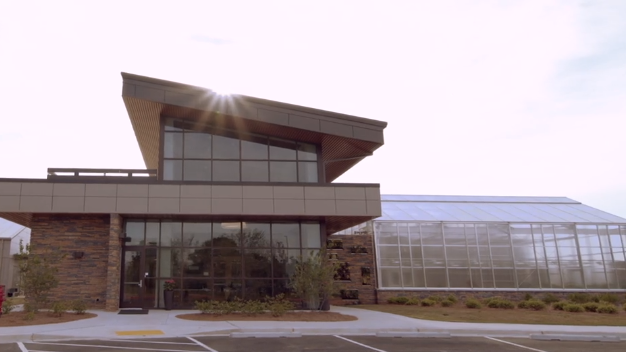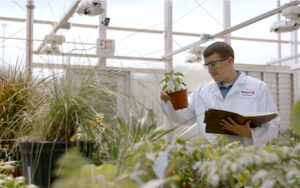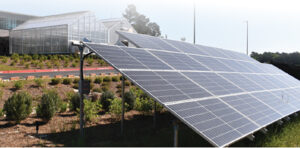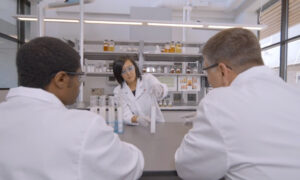Stepan Company Opens New Agricultural Innovation Center in Georgia, U.S.

Stepan Company is excited to announce that it has opened its new Agricultural Innovation Center in Barrow County, Georgia, U.S., strategically located near the Company’s manufacturing site in Winder, Georgia. Stepan believes the Agricultural Innovation Center will further facilitate collaboration with customers and foster research and development initiatives in the agricultural industry.
“[The Agricultural Innovation Center] is a testament to our commitment to safe and sustainable agriculture, our customers’ growth and to farmers worldwide who face increasing challenges that require new innovations,” said Jason Keiper, Stepan Company Chief Technology and Sustainability Officer.

The Agricultural Innovation Center will include a greenhouse for live plant testing and research, a training center for formulation development, a Class II lab to support biological formulation development, state-of-the-art labs dedicated to liquid and dry formulation design, and a spray chamber for studying driftable fines in commercial formulations.
In addition, the spray chamber will also be used to develop innovative solutions to minimize the formation of these fine particles. As new drift reduction products are developed, the spray lab will allow for instantaneous evaluation of performance to support rapid prototyping and commercialization.
The training center for formulation development will provide our employees, distributors and customers the most comprehensive training by some of the leading agrichemical formulators in the industry. It will also include a Stepan Virtual Collaboration Lab where technical experts can offer real-time customer support and live, hands-on formulation training from any location with internet connection.

The Agricultural Innovation Center also will be Stepan’s first Leadership in Energy and Environmental Design (LEED) certified facility. A LEED-certified building includes features aimed at promoting energy and water efficiency, greenhouse gas emissions reduction, improved indoor air quality and reduced environmental impact. Some of the features of the new facility that contribute to the certification include:
- More than 48,000 square feet of native plants
- Collection and reuse of rainwater for 100% of the facility’s irrigation needs
- Plug-in option for hybrid or electric vehicles
- 10 kilowatt solar panels to offset about 10% of the total building energy load
- Interior design features for enhanced natural lighting and energy efficient LED light fixtures
- Living wall with plants to improve indoor air quality
- Building’s external color to help reduce heat absorption
- Insulated metal panels for superior insulation performance that also uses Stepan polyester polyol technology
- High efficiency HVAC system and low flow fixtures to reduce water usage

Stepan recognizes the need for sustainable solutions in agriculture that is driven by regulatory changes, consumer preferences, and the increasing use of biological active ingredients and organic farming. With the new Agricultural Innovation Center, Stepan is well-positioned to offer sustainable crop protection solutions and enable our customers’ growth.
Sarah Wolek, Technical Director commented: “Sustainability was key for the design of the building, from high-performing insulation to the use of native plants, to the installation of solar panels that provide a significant portion of electricity for the site. This sustainable environment is great inspiration for our team as we continue to develop more sustainable products and processes for the agricultural industry.”
The temperate climate in Georgia also will enable Stepan to test year-round, helping accelerate the rate at which products are moved to large-scale production and new solutions are brought to the market.
Stepan expects the facility to contribute to the development of the agricultural industry in Barrow County and the industry at large. It will be a resource for students and area residents as the new facility is near Emory University, which has a Sustainability and Resilience Collaboratory of which Stepan is a partner, as well as the University of Georgia and other academic institutes with strong agricultural programs.